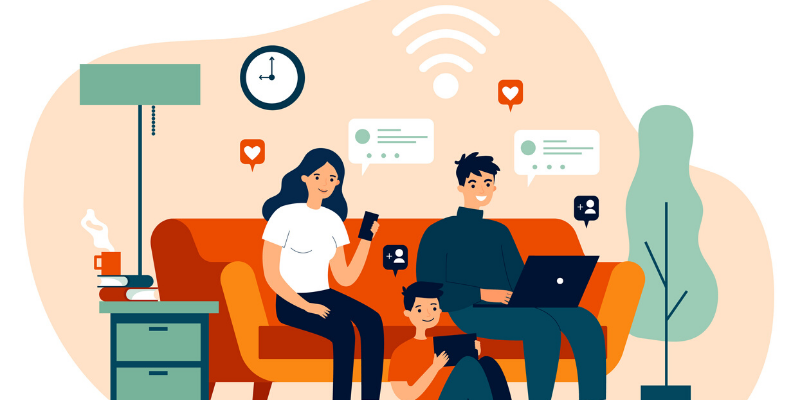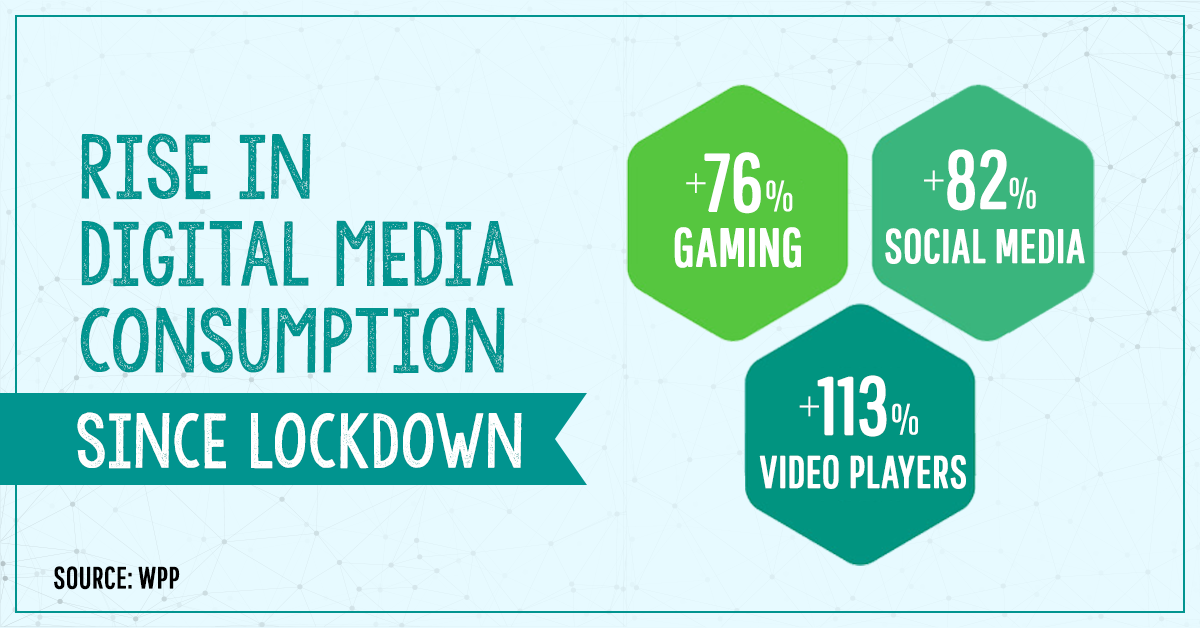While the world continues to live in lockdown, the impact of the novel coronavirus is bringing unprecedented changes in the behaviour and habits of people in terms of media and entertainment consumption, including but not limited to digital platforms, television, news, etc. People are consuming more online content even while cooking, exercising, or working from home during these unusual times.

The obvious shifts that have been reported so far from the impact of coronavirus pandemic on digital consumption are:
Video streaming/OTT platforms
A WPP report on ‘Impact of COVID-19 on consumers & brands’ suggests that the video-streaming platforms have seen over 113 percent rise in the number of average users since the nationwide lockdown.
Various video-streaming platforms are looking at the growth in a similar pattern during the pandemic, with the availability of time, undivided attention and disposable spending power.
Social media platforms
Coronavirus has socially distanced people, but social media has brought the community even more closer. The surge in the use of social media platforms has been estimated at 82 percent as it becomes the primary medium of communication and entertainment during the lockdown. The screen time spent on social media will continue to grow as the users are posting 352 percent more content, and are spending an average 4 hours on the apps as compared to 1.5 hours previously.
Gaming
Online games are becoming favourites among the masses looking to kill time. A 76 percent surge in gaming has also been noted.
Ecommerce
While people are locked in their houses, ecommerce grocery platforms took it upon themselves to provide the customers with the essentials. Major brands are currently delivering over 283,000 orders every day – and this shows the amount of time being spent on these ecommerce apps.

Digital Disruption & Reverse Migration
Despite the type of content being consumed, a clear observation can be made that every generation is highly dependent on digital platforms/channels to keep themselves distracted or informed during the lockdown.
While we see that a lot of time is being spent on digital platforms, this creates a humongous opportunity for marketers who cater to both B2B and B2C segments of the industry to tap and engage with potential customers.
The current scenario is quite comforting for brands across all domains, as they have been able to communicate and engage with their target audience meaningfully, creating long-lasting relationships.
Brands are making the most of OTT players, social media, and gaming platforms as an advertisement platform since people are getting habitual of these platforms. Further, there is a likely scenario where people of all generations – Gen X, Gen Z and the millennials – will thrive on digital consumption, making it the new normal.
In fact, brand marketers have an upper hand in this situation, as even when the lockdown ends, people are likely to stay home consuming online content – which means that there is an unlikely scenario where people spend less time socialising at public places post-COVID-19.
During the pandemic, various industries have been struggling to find a way to connect with their audience and are losing their brand presence. But digital media platforms are offering greater, enhanced and more targeted reach within the budget of the brands. Furthermore, platforms like WhatsApp, Jio and Facebook have come together to help the local neighbourhood kirana stores reach to their customers.
While we look at the accelerated adoption of digital media consumption, we must also keep an eye any reverse migration that suggests that people will move back to consuming traditional cable, news etc. If we look at it closely, we can see that the chances of the reverse migration are lesser as compared to the latest trends. The upswing in online consumption pattern is coming from not just from Tier-I cities but also Tier-II and Tier-III cities.
As people choose to stay at home, physical/social connection will exist among the people in parallel with a virtual existence as they share memes or new movie recommendations. Though digital media fatigue might repel people from using the platforms, people will continue to buy essentials or order food from ecommerce websites, and connect via video calls.
How will brands approach the customers post-COVID-19?
Brands are curating extraordinary content to meet the heightened content consumption, and are focusing on creating an agile plan that not only engages or entertains people but also empathises and helps people relate to the rest of the community. Some of the trends that will be noticed:
- Video-streaming content will offer more free content, as many films will skip cinema releases.
- Virtual tours, virtual experiences, virtual-learning and virtual relations will form an integral part of the new normal.
- More home-produced content will keep the population entertained and give something to look forward to.
- Online content-streaming platforms will seek investment to cater to the amplified demand for online streaming content.
The proper management of digital content will attract even more customers to the video-streaming platforms – for trailers, discussions, researches; social media platforms – for sharing, interacting and promoting; and otherwise, brands will digitally transform to meet the needs.
The influx of customers on these platforms will allow them to offer substituted rates to allow the brands to curate creative content and mingle with their target audience in large numbers.
The path forward
Augmented consumption of digital media – be it OTT platforms, gaming, news, or social media channels – is becoming the new normal as social distancing is followed worldwide. As the world is turning digital, it is increasing the bandwidth for the brands to reach a wider and global audience.
Brand marketers are looking at interacting and engaging with various niche segments of their target market through various digital marketing tools such as ecommerce ads, in-game ads, social media ads, OTT ads, and more.
(Edited by Kanishk Singh)
(Disclaimer: The views and opinions expressed in this article are those of the author and do not necessarily reflect the views of YourStory.)
Want to make your startup journey smooth? YS Education brings a comprehensive Funding and Startup Course. Learn from India's top investors and entrepreneurs. Click here to know more.
Link : https://yourstory.com/2020/05/impact-coronavirus-digital-content-consumption-marketing
Author :- Divanshi Gupta ( )
May 23, 2020 at 11:36AM
YourStory

